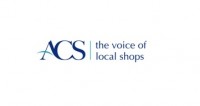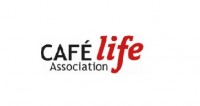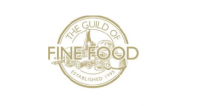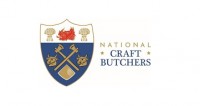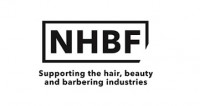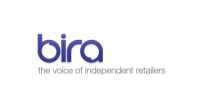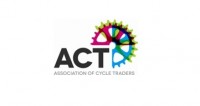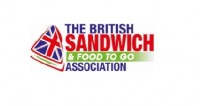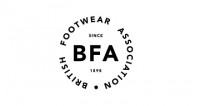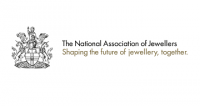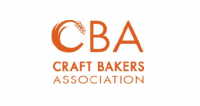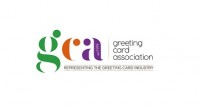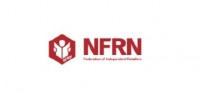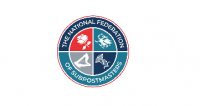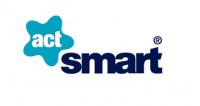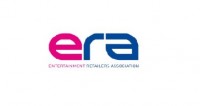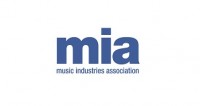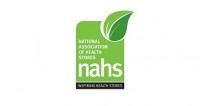EU Exit Updates
Full report now available: Brexit Analysis and Implications on the Cycle Trade
As your trade organisation we have consulted third parties to create a report on how the Trade and Cooperation Agreement affects the ecommerce and multi-channel retailers when either importing bikes (conventional or e-bikes) as well as parts and accessories between UK and EU countries.
The report is available to all ACT members, this means a silver membership and above. To view the full report please login to your ACT account and then click the link at the bottom of this page.
If
you are not a member and would like to view the report, membership
starts from as low as £60 per year (the equivalent of £5 p.m.) and
offers countless benefits. Find out more here.
The ACT will be providing regular updates on the EU exit.
Watch this space for the latest information and advice tailored for retail businesses operating in the cycle sector. The ACT have been working with partner members of the Independent Retailers Confederation (IRC) to bring you the most up to date retail focussed advice.
UK-Australia trade deal
Published 4th January 2022
The UK-Australia trade deal has now been agreed, and the full treaty text is available here. It may take some months for the treaty to come into force as both the UK and AUS must ratify it first.
When it does come into force, zero tariffs will be available immediately for goods meeting the rules of origin set out below (for some goods the tariff reductions are staged, but that is not the case for bikes, e-bikes or cycle parts).
The rules of origin are given in the "product specific rules" document here, page 4B-253.
Post Brexit Legislative Opportunities
Published 23rd September 2021
The Government has unveiled new plans to "capitalise on the freedoms from Brexit". A full list of the regulatory reforms being considered is available here. This includes a proposal to review EU restrictions on selling in pounds and ounces, the government plans to introduce legislation to give businesses the option to use imperial units. ACS will monitor future reviews of regulation and update our Fair Trading assured advice guide and other guidance documents accordingly.
Cabinet Office: Government launches plans to capitalise on new Brexit freedoms
UK wants to redraw Northern Ireland Protocol
Published 22nd July 2021
The UK has unveiled a new set of demands to redraw the post-Brexit trading arrangements it agreed with the EU for Northern Ireland.
The government said border checks on goods from Great Britain it signed up to in the 2019 Brexit divorce deal had proved unsustainable.
Brexit Minister Lord Frost said they risked harming business, and were damaging the "fabric" of the UK.
The EU said it would not agree to renegotiate the terms of the 2019 deal.
The checks are included in the Northern Ireland Protocol, a section of the Brexit deal designed to avoid border checks on the island of Ireland.
Sign up for the UKCA marking webinar
Published 15th July 2021
Now we've left the EU, our new domestic goods regulation regime is in place. If you previously used the CE marking to sell certain products in Great Britain, you need to take action before 1 January 2022. The new rules include important changes to the way these products need to be labelled.
You should check what you need to do on the ‘Using the UKCA marking' guidance page at the earliest opportunity.
At the beginning of this year, we introduced the UKCA marking for selling goods in Great Britain (England, Scotland and Wales). There are now only six months to go until you must use the UKCA marking for most goods being sold in Great Britain that currently use the CE marking. For your products to continue being sold in Great Britain from 1 January 2022, it is essential you make sure your products comply with the UKCA marking as soon as possible.
If your business manufactures, imports or distributes goods which require testing by a conformity assessment body, start the testing process early to ensure you will be ready on time.
Special rules apply for medical devices, rail interoperability constituents, marine equipment and other goods. These are set out on the ‘Placing manufactured goods on the market' guidance page.
The CE marking continues to apply to goods sold in Northern Ireland. These may need to be accompanied by the new UKNI marking in certain circumstances.
The Department for Business, Energy and Industrial Strategy will be running a webinar on 20 July to help you understand how to comply with the new goods regime, you can sign up now.
Changes to way goods are moved from NI to EU from today
Published 1st July 2021
From July 1, 2021, there will be changes in the respect of the movement of goods from Northern Ireland to the EU, and imports of low value goods into the EU or Northern Ireland.
The EU's e-commerce package will introduce the changes, which also includes new rules for supplies made through online marketplaces, similar to those already applying in Great Britain and partly in Northern Ireland.
The changes are part of the Brexit process which began on January 1, 2021, and will simplify current VAT registration requirements for selling into the EU, making it easier for businesses to grow, stay compliant and protect their bottom line.
If you sell low value goods in consignments not exceeding £135 in value into Northern Ireland and are registered for the VAT Import One Stop Shop (IOSS) in the EU, you must tell HMRC your IOSS registration number.
This means:
- if you're UK VAT registered you can account for supply VAT on your eligible sales of low value goods into Northern Ireland on your IOSS return
- you do not have to account for import VAT when the goods enter Northern Ireland
If you're registered for the Import One Stop Shop (IOSS) as an intermediary to represent businesses in the EU for IOSS, and the businesses you act on behalf of make supplies of low value goods, you must tell HMRC your IOSS registration number and the details of each business. You must complete a separate form for each business you represent.
EU Exit Updates - June 2021
UK agrees historic trade deal with Australia
Published 17th June
The UK has secured a trade deal with Australia eliminating tariffs on all UK goods and boosting jobs and businesses across the country, in the first major trade deal negotiated from scratch by the Government since we left the EU.
The main elements of the deal were agreed by Prime Minister Boris Johnson and Australian Prime Minister Scott Morrison at a meeting in Downing Street on Monday 14 June. A final Agreement in Principle will be published in the coming days.
The new Free Trade Agreement means iconic British products like cars, Scotch whisky, biscuits and ceramics will be cheaper to sell into Australia, boosting UK industries that employ 3.5 million people across the country. The UK-Australia trade relationship was worth £13.9 billion last year and is set to grow under the deal, creating opportunities for businesses and producers in every part of the UK.
British farmers will be protected by a cap on tariff-free imports for 15 years, using tariff rate quotas and other safeguards. We are also supporting agricultural producers to increase their exports overseas, including to new markets in the Indo-Pacific.
Agrifood rules move 'could make NI Protocol work'
Published 17th June
The UK's Brexit minister has suggested the EU could change its agrifood rules if it wants the NI Protocol to work.
The protocol means food products must be checked and controlled as they enter Northern Ireland from Great Britain.
Lord Frost said those checks were a political position by the EU and did not depict "some existential reality about the world".
He negotiated the protocol in 2019, but said it is not being implemented as he intended.
The protocol avoids a hard border on the island of Ireland by keeping Northern Ireland in the EU single market for goods.
That means products are checked and controlled as they arrive from Great Britain.
The EU has strict rules on food products entering the single market, so these are subject to the most intense checks.
Sausages from GB could soon be banned from entering NI
Published 10th June
Sausages, burgers and other chilled meats is a section of the Brexit deal called the Northern Ireland Protocol, which the UK and the EU signed up to.
Because of Brexit, Great Britain (England, Scotland and Wales) no longer follows EU rules. However, Northern Ireland does - because it shares a land border with the Republic of Ireland, an EU member.
Sausages come into this because EU food safety rules don't allow chilled meat products to enter its market from non-members - like the UK.
However, a six-month grace period has been in place since January where the rules don't apply.
And, under the terms of the protocol, this runs out at the end of June.
Talks on what happens next, as well as on other aspects of the protocol, will be held between the UK and EU on Wednesday 9 June.
UK Environment Secretary George Eustice told the BBC the EU needed to explain why sausage sales to Northern Ireland should stop.
G7 summit: Biden to warn PM not to risk NI peace over Brexit
Published 10th June
US President Joe Biden will later tell PM Boris Johnson not to let the row over post-Brexit trading in Northern Ireland affect the peace process.
The two leaders will have their first face-to-face talks in Cornwall at 15:00 BST on the eve of the G7 summit.
Mr Biden will stress the need to "stand behind" the Northern Ireland protocol.
They will also discuss transatlantic travel and a new "Atlantic Charter" aimed at refreshing the relationship between the UK and US.
New EU VAT rules for low value shipments now apply
Published 3rd June
As of Tuesday (1st June) the new EU VAT rules apply for shipments into the EU of declared value up to 150 EUR - affecting both B2B and B2C sales from the UK. For affected shipments import VAT will need to be charged at point of sale, and a new imports one-stop shop will be in place (so sellers only need to register once for all EU sales).
There will also no longer be a VAT exemption for shipments valued up to 22 EUR.
These changes largely mirror the changes which the UK has already made to its import VAT arrangements at the start of this year.
UPS have provided a helpful guide here.
Brexit checker reminder
Published 3rd June
Doing business with Europe has changed. You need to follow new rules on exports, imports, tariffs, data and hiring.
Use the Brexit checker to get a personalised list of actions for you, your business and your family.
EU Exit Updates - May 2021
No Norway fishing deal this year, Hull MP claims
Published 27th May 2021
Talks about access broke down in April and Hull Labour MP Karl Turner said the fisheries minster told him in a recent meeting there would be "no negotiations for the rest of this year".
Mr Turner had met Victoria Prentis to discuss Hull trawler Kirkella, which has been unable to fish since Brexit.
The government said any fisheries deal had to be "in the interests of the UK".
Mr Turner, the MP for Hull East, and Emma Hardy, Labour MP for Hull West and Hessle, said the meeting was aimed at asking the government to restart negotiations with Norway about fishing rights.
"We're deeply proud of our city's fishing heritage in Hull - and rightly so. But it deserves to be part of our future, too, and the government needs to get back around the negotiating table to allow that to happen," said Mr Turner.
"Failure to do so would be a national embarrassment," he added.
Surge in Irish cross-border trade continues
Published 20th May 2021
A surge in cross-border trade in Ireland continued in March, official figures suggest.
Ireland's Central Statistics Office (CSO) figures show the value of goods exports from Northern Ireland (NI) to the Republic of Ireland rose by 62% from 176m euros to 285m euros.
For the entire first quarter of 2021, NI exports to the Republic were up 44% from 519m euros to 748m euros.
Exports from RoI to NI were up by 22% from 557m euros to 682m euros.
Since the NI Protocol began operating in January, it has become more difficult for businesses in either part of Ireland to import goods from Great Britain.
Northern Ireland has remained in the EU's single market for goods, which means that products arriving from Great Britain are subject to new checks and controls
Goods arriving from GB into the Republic of Ireland face similar processes.
However, goods trade across the Irish border remains as it was before Brexit, with no new checks and controls.
That appears to be prompting some businesses to source more products on the island of Ireland where they can, rather than from GB.
New round of funding 'to support innovation in every corner of the UK'
Published 20th May 2021
A £3 million funding pot that will ensure the UK's rules and regulations post-Brexit keep pace with innovation has opened for applications today.
Regulators and local authorities will be able to apply for funds of up to £200,000 from the Regulators' Pioneer Fund to deliver initiatives that will help to keep the UK at the forefront of regulatory thinking and experimentation.
Many regulatory functions are performed at a local level, from taxi licensing to trading standards. So for the first time, government has expanded the fund to include local authorities so regulatory innovations can be tested at a local, as well as national, level.
The competition is now live and receiving applications until 15 July 2021. Read further details about the competition.
Irish Sea Border: UK exports to Ireland drop since Brexit
UK goods exports to Ireland fell by 13% in the first quarter of 2021 compared to the same period last year.
Official estimates from the Office of National Statistics also show that imports from Ireland were down by 4% in the same period.
However, there were signs of recovery in March with imports and exports increasing.
Trade across the Irish Sea has become more difficult since the end of the Brexit transition period.
Deadline approaching for new stricter EU product safety rules
Published 5th May 2021
On July 16, 2021, a new EU Regulation on product safety (called the "Market Surveillance Regulation (EU) 2019/1020") is coming into effect. This new regulation adds the requirement for CE-marked products to have someone present in the European Union acting as the point of contact for product compliance (a "Responsible Person").
If you sell CE-marked products that are manufactured outside of the EU, you will need to ensure that such products have a Responsible Person in the EU prior to July 16, 2021. After July 16, 2021, it will be illegal to sell CE-marked products in the EU without an EU Responsible Person.
Prior to July 16, 2021, you will need to ensure that your CE-marked products are labelled with the contact information of the Responsible Person. This labelling can be done on the product, its packaging, the parcel, or an accompanying document.
The EU guidance states:
The name (or registered trade name/trademark) and contact details
(including postal address) of the economic operator .. must be indicated
on at least one of the following: the product; its packaging, i.e. the
sales packaging; the parcel, i.e. packaging to facilitate handling and
transport; an accompanying document, e.g. declaration of conformity.
Read more here.
Documents detailing how the UK is implementing these carried-over Regulations in GB and NI are available here.
The above is for direct to consumer sales only. Those that use an EU
subsidiary, via an EU distribuor or via dealers in the EU, or similar,
those companies will already be taking on the importer role and so no
additional authorised representative should be needed.
EU Exit Updates - April 2021
A guide to Postponed VAT Accounting (PVA)
Published 21st April 2021
The Government has provided some new advice for people using Postpoed VAT Accounting (PVA) in post-Brexit Britain.
Accounting for import VAT on your VAT return (also called Postponed VAT Accounting) means you'll account for and recover import VAT on the same VAT return, rather than having to pay it upfront and recover it later.
Here are the steps that you can take to make sure you benefit when you're importing goods into Great Britain or Northern Ireland, from any country.
Question 1: I've heard about PVA, but I'm not sure if it's for me. Why should I use it, and where can I find out more about it?
Answer: PVA allows UK VAT registered importers to account for and recover import VAT on their VAT return. PVA is available permanently and we expect that most businesses will choose to use it, because it provides significant cash flow benefits compared to the alternative of paying the import VAT when the goods are imported.
Different rules apply in different situations. In some cases, you must account for import VAT on your VAT return - for example, if you delay your customs declaration.
You can go to GOV.UK to check when you must use PVA to account for import VAT on your VAT return, and when it is optional.
Question 2: How do I tell HMRC that I want to use PVA?
Answer: There isn't an application process for PVA, and you do not need to tell HMRC in advance if you want to start accounting for import VAT on your VAT return. You need to confirm in your customs declaration that you are using PVA.
If you use the Customs Handling of Import and Export Freight (CHIEF) system
On your declaration, enter:
- your EORI number starting with ‘GB' which includes your VAT registration number into box 8 (Header Consignee), or, if applicable, your VAT registration number in box 44h (Registered Consignee)
- 'G' (Postponed accounting for VAT approved) as the method of payment in Box 47e.
If you use the Customs Declaration Service (CDS)
On your declaration, enter:
- your VAT registration number at header level in data element 3/40.
Please note that VAT will be recorded against your EORI and will be at declaration level only.
If someone else is doing your customs declarations for you such as a freight forwarder, customs agent, broker or fast parcel operator you must tell them you want to use PVA. Tell them that you want to use PVA to account for import VAT on the imported goods, so that they can complete the customs declaration correctly on your behalf. Keep a written record of what is agreed for your records.
Whoever completes the declaration must take care when selecting how to account for import VAT on the customs declaration, as this cannot be changed once the declaration has been submitted.
Question 3: How do I complete my VAT return if I'm using PVA?
Answer: After you have selected PVA on your customs declaration you will need to account for import VAT when you complete your VAT return.
To complete your VAT return, you will need:
- details of any customs entries you have made in your own records
- copies of your monthly postponed import VAT statement, when available.
Unless you have delayed your customs declaration, each of your statements will show the total import VAT postponed for the previous month.
If you are delaying your customs declarations:
- you must account for import VAT on the return which includes the date you imported the goods
- to complete the boxes on your return, you'll need to estimate the import VAT due from your records of imported goods
- when you submit your delayed declaration, you must select that you're accounting for your VAT on your return.
Your next online monthly statement will show the amount of import VAT due on that declaration. You'll then be able to:
- adjust your estimate
- account for any difference on your next return.
Question 4: How do I get the statement I need to complete my VAT return?
Answer: If you account for your import VAT on your VAT return, you'll need to get a postponed import VAT statement online.
Unless you have delayed your customs declaration, each statement will show the total import VAT postponed for the previous month.
Your statements will usually be available to view by the 6th working day of the month.
To view your statements, you'll need a Government Gateway user ID and password which is linked to your EORI number. If you do not have a user ID and password, you can create your account on GOV.UK.
Further help and support on importing and exporting
There is a range of customer support, online guidance and tutorials available to help you. Here's some of the support that's available for you:
YouTube videos
Watch the short videos on HMRC's YouTube channel to familiarise yourself with customs processes and what you need to do before trading goods with the EU.
Live webinars
You can attend webinars about:
- Customs Import Declarations: An overview
- Exporting: what you need to do to keep your goods moving
- Importing: what you need to know about Staged Controls
- Trader responsibilities when using an intermediary.
If you'd like to attend a webinar you can register here.
To ask and get answers to specific questions about HMRC processes for importing or exporting, please visit the customer forums.
Call the hotline
Customer
service advisors are available to answer your queries on the Customs
and International Trade helpline. They'll help you with importing,
exporting and customs reliefs. The helpline is open from 8am to
10pm Monday to Friday and from 8am to 4pm at weekends.
Call to speak to an advisor on 0300 322 9434.
Apply for a grant to help small and medium-sized businesses new to importing or exporting
Published 21st April 2021
You can now apply for the SME Brexit Support Fund.
Smaller businesses can get up to £2,000 to pay for practical support,
including training or professional advice to adjust to new customs,
rules of origin and VAT rules when trading with the EU.
You can apply and find more information on eligibility here.
NI firms to use EU subsidy rules for Covid recovery loans
Published 20th April 2021
Northern Ireland firms applying for new government-backed Covid recovery loans will have to do so within EU subsidy rules.
Some firms in Great Britain may also be covered by EU rules depending on the extent of their business in NI.
Under the Recovery Loan Scheme (RLS) UK firms can borrow between £25,001 and £10m.
The money will be lent by banks with the government guaranteeing 80% of the loan.
The terms of the NI Protocol mean Northern Ireland is still in the EU single market for goods and so is still subject to EU subsidy rules for trade in goods. This mostly affects manufacturers.
It means that firms in Northern Ireland applying for the RLS will have to comply with what is known as the EU's Undertaking in Difficultly (UID) test.
These are EU rules setting out the circumstances in which state support can be given to a firm which is in financial trouble.
Freight traffic between Welsh and Irish ports rises after slump
Published 20th April 2021
One of the largest Irish Sea ferry operators says freight traffic is on the up between its ports in Wales and Ireland, following a dip after Brexit.
It was down by half for much of the first three months of 2021 at Holyhead and Fishguard.
Ferry operators said this was partly because lorries from Ireland to other EU countries had started going on ferries direct to France.
But latest Stena Line figures show the reduction in lorry numbers is now 28%.
The figures are for the week ending on Easter Sunday, compared with the same week last year.
The company said at least one major exporter had now begun sending lorries through Holyhead again, and others were sending test loads as they look at returning to the route.
UK exports to Ireland partially recover following Brexit
Published 20th April 2021
Trade between the UK and Ireland partially recovered in February, after a steep drop in January following Brexit.
The value of UK exports to Ireland was up by 38% month-on-month from £1.13bn to £1.56bn.
That is still down by more than 7% compared to February last year when exports were valued at £1.69bn.
The figures for Irish imports to the UK continued to deteriorate, down by 21% month-on-month and 17% year-on-year.
The value of Irish imports in February was £877m, the worst month in more than 10 years according to figures from the Office for National Statistics (ONS)
The trade figures were the first since new rules came into force as a result of Brexit.
UK exports to EU rebound partially after January's slump
Published 14th April 2021
Trade between the UK and EU partially recovered in February, after a steep drop in January following Brexit.
Official figures show exports to the EU jumped by 46.6%, £3.7bn, to £11.6bn, following January's 42% slump when firms struggled with new trade rules.
However, the Office for National Statistics said exports were still below last year's levels and imports from the EU had seen a weaker recovery.
Other figures from the ONS showed the UK economy grew by 0.4% in February.
The UK's statistics body said the economy was still 7.8% smaller than a year earlier, before the impact of the pandemic.
Last month's trade figures were the first since new trading rules came into force as a result of Brexit trade rule changes.
Both the ONS and business analysts said the drop in trade flows was partly caused by stockpiling in December 2020, as businesses tried to get ahead of the introduction of the new rules, depressing trade in January.
In addition, the end of the temporary trading arrangement between the UK and the EU coincided with the discovery of a new strain of Covid-19 in the UK, which caused further complications and delays, after lorry drivers were required to take tests before crossing the border at the English Channel.
UK delivers NI Protocol 'road map' to the EU
Published 14th April 2021
The UK has delivered its "road map" for implementing the Northern Ireland Protocol to the EU.
Lord Frost, the UK's lead Brexit Minister, and EU Commission Vice-President Maroš Šefčovič spoke on Wednesday.
The protocol is the part of the Brexit withdrawal deal that created the Irish Sea border. Earlier this month, the UK government changed how the protocol was being implemented without EU agreement. It delayed the introduction of new sea border checks on food, parcels and pets. It also moved unilaterally to ease the trade in horticultural products across from Great Britain to Northern Ireland.
The EU has begun legal action as a consequence.
Moving goods between Great Britain and Northern Ireland
Published 7th April 2021
The Government has updated some of its guidance with regards to how business trade in post-Brexit Britain.
They include details on businesses which move goods Great Britain to Northern Ireland.
Businesses are required to complete the following five actions:
- Registering for the Trader Support Service
- Get an E ORI number
- Check your commodity codes
- Check whether the UK Trader Scheme could help your business
- Check goods regulation: Manufactured and agri-food goods
For more information, click here.
For the updated explainer video on moving goods into, out of or through Northern Ireland, click here.
For a list of helpful videos about the Trader Support Service, click here.
EU Exit Updates - March 2021
Subsidy Control Rules
The Department for Business, Energy and Industrial Strategy has launched a consultation on establishing new rules around government subsidies, to prevent any distortive impacts of financial support on competition within the UK and internationally.
This consultation has been published following the end of the transition period for leaving the European Union on 31st December. The consultation is about establishing new UK subsidy control rules, to replace existing EU-derived state aid law. The main impacts of existing state aid rules are requiring retailers to complete state aid declarations when receiving business rates relief or other financial support, and preventing access to financial support when a €200,000 over three fiscal year limit is reached.
HMRC tax and customs support to businesses that trade with Europe
Published 29th March 2021
VAT-registered businesses that trade with the EU are being offered further customs and tax support by HM Revenue and Customs. Support includes:
- The SME Brexit Support Fund
- Regular live webinars
- The ability to delay import declarations on duty payments on goods moving between the EU and GB
- The ability to appoint a specialist to deal with import and export declarations
- Preferential rates of duty (where eligible)
- Support for moving goods through Northern Ireland
For more information, click here.
Moving goods from Great Britain to Northern Ireland
Published 26th March 2021
- New guidance has been published on moving goods from GB to NI here.
- The guidance sets out 5 key actions businesses should take including; registering for Trader Support Service, getting an EORI number, checking commodity codes and checking goods regulation.
- If your business moves goods into Northern Ireland, the free to use TSS here will help you navigate the changes to the way goods move between Great Britain and Northern Ireland.
- The grace period for certification required on agri food goods has been extended until at least 1 October 2021.
- There will be a review of the arrangements in advance of that point, with further guidance to be published on the phased introduction of certification.
SME Brexit Support Fund is open for applications
Published 15th March 2021
The
SME Brexit Support Fund could give you up to £2,000 to help with
training or professional advice, if your business has up to 500
employees and no more than £100 million annual turnover.
Traders can apply for up to £2,000 in total through two types of grants:
Grant for Training: The grants can be used to provide training on the following:
- How to complete customs declarations
- How to manage customs processes and use customs software and systems
- Specific import and export related aspects including VAT, excise and rules of origin
Grant for Professional Advice:
The grant can be used to get professional advice, so your business can
meet its customs, excise, import VAT or safety and security declaration
requirements.
Find out more information on eligibility for the fund and apply online .
Applications will close on 30 June 2021 or earlier, if all funding is allocated before this date.
Value Added Tax EU Exit Transitional Provisions
Published 8th March 2021Guidance on the VAT treatment of transactions, or movement of goods which span the end of the transition period, has been updated at Section 6: Financial services, and includes a link to the new detailed guidance on transitional guidance for VAT specified supplies.
For more information, click here.
SME Toolkit: Trading with the EU and Northern Ireland
Published 8th March 2021
A new summary of actions SMEs may need to take to trade with the EU is now available.
The document provides an overview of actions to take, outlines support,
helplines and resources that may be useful for SMEs, and signposts more
detailed guidance on Government websites.
To view the toolkit, click here.
EU Vnuk motor insurance law to be removed from British law
The Vnuk law requires a wider range of vehicles than those such as cars and motorbikes to be insured, including ones previously not requiring insurance, such as golf buggies, mobility scooters, quad bikes and potentially e-bikes.
The Government has now announced the decision to scrap the controversial Vnuk from British law, stating that this change will "reiterate benefits of leaving the EU, as we take back control of our own laws and regulations".
Implementing compulsory third party insurance for those riding e-bikes
on pubic land has not been sufficiently proven to be necessary and could
have seriously damaged the e-bike market.
Brexit key terms
Published 1st March 2021
The Government have released a helpful flowchart to help explain how to import from & re-export union goods to the EU.
The document also includes a full list of Brexit key terms, these are copied below:
- Origin/Originate - Rules of origin determine where your
goods originate from. This means that the origin is the economic
nationality of goods being imported and exported (where they have been
produced or manufactured). It is not just where they have been shipped
or bought from.
- TCA preference - A zero rate of duty provided under the UK-EU Trade and Co-Operation Agreement (TCA).
- Preference - A reduced or zero rate of duty provided under an agreement that the UK has entered into with another country.
- Union goods - Union goods means:
a) Goods wholly obtained in the EU and not incorporating goods imported from outside the EU.
b) Goods imported into the EU and released into free circulation in the EU.
c) Goods obtained or produced in the EU from goods in categories a) & b).
- Preferential origin - Applies to goods that are being traded between the Parties to a preference agreement and which meet the rules of origin and
origin procedures within that agreement.
- Non-preferential origin - These are rules that apply for
purposes other than preferential duty, for example, if trade embargoes
or Anti-Dumping Duties apply or for compiling statistics.
- Statement on origin - This is an origin declaration (also
known as an ‘invoice declaration') that is made by using a commercial
document that has enough detail to identify the origin of the goods.
This can be an invoice, packing list or delivery note.
- Importer's knowledge - This allows the importer to claim
preferential tariff treatment merely based on their own knowledge about
the originating status of imported products.
- Free circulation - This applies to goods that are duty paid
and cleared by Customs and which can now be sold, or used within the
customs territory.
- Transit - The Common Transit Convention is used to ease the
movement of goods between or through any common transit countries. The
UK is a member of the Common Transit Convention.
- Special Procedures - Customs special procedures allow you to
store, temporarily use, process or repair your goods and get partial or
full relief from import duty, or in some cases suspension of duty.
- UK Global Tariff - The UK Global Tariff (UKGT) applies to
all goods imported into the UK unless the country you're importing from
has a trade agreement with the UK or an exception applies, such as a
relief or tariff suspension or the goods come from developing countries
covered by the Generalised Scheme of Preferences.
- Returned Goods Relief - This is a relief that can be applied
to goods which are being re-imported into the UK that have previously
been exported from the UK. You may also be able to claim relief on goods
that you re-export to the EU that have previously been exported from
the EU, but
you will need to check with the relevant EU customs authority.
- Product specific rules - For every product traded under a
free trade agreement, there is a corresponding product-specific rule
(PSR) that must be met to demonstrate the product originates in the free
trade area and qualifies for preferential tariff treatment.
- Goods subject to any form operation - Goods that are not substantially processed or transformed but undergo some form of minimal processing.
- Wholly obtained - Your goods are normally classed as ‘wholly
obtained' if they're natural products, or products manufactured
entirely from them that
completely originate from the country or territory covered in preference agreements.
- Wholly produced - Wholly produced goods are those produced or manufactured exclusively from wholly obtained inputs.
HMRC Brexit communications resources
Published 1st March 2021
HM Revenue and Customs Brexit have released updated resources to help stakeholders and intermediaries support their members, clients and customers with Brexit.
The updated documents are:
- Importing from and re-exporting union goods to the EU - flowchart
- Trader support pack - exporting goods from GB into the EU
- Trader support pack - importing goods from the EU into GB
- Trader checklist
- Travellers Communication Pack
- Travellers Communication Pack supporting materials - posters and social media
New TCA documents
Published 1st March 2021
UPDATED: New documents about the Trade and Cooperation Agreement between
the United Kingdom of Great Britain and Northern Ireland and the
European Union: Three new supporting documents have been made available:
- Letter from European Commission Vice-President Šefčovič proposing extension of provisional application of UK-EU Trade and Cooperation Agreement.
- Letter from Chancellor of the Duchy of Lancaster agreeing to the extension of provisional application of UK-EU Trade and Cooperation Agreement.
- Draft decision of the UK-EU Partnership Council extending provisional application of the UK-EU Trade and Cooperation Agreement.
To view these, click here.
Moving goods
Published 1st March 2021
UPDATED: Sending goods to the EU through roll on roll off ports or the Channel Tunnel: Guidance on transporting goods to the EU from the UK via these channels has been updated with a new section on Assumed Departure. For more information, click here.
Travelling to Europe for work? Business Travel: An explainer document
Published 1st March 2021
A short explainer document has been produced to help you understand the
new rules that are in place for business travel to Europe for work.
These rules apply to you if you are travelling for work in Europe
regardless of whether you are attending a conference or providing
services.
For more information on entry requirements, luggage, earnings, qualifications, and insurance pertaining to your travel, view the full explainer document.
EU Exit Updates - February 2021
Webinars and Podcasts
Published 24th February 2021
All webinars and videos for organisations that trade with the EU can be found here. This includes the following:
- NEW: Exporting: What you need to do to keep your goods moving: A new YouTube video from HMRC is now available to watch on-demand. To view this, click here.
- Video content to keep your business moving: short on-demand videos covering the new rules on exports, imports, tariffs, data and hiring.
- Customs Import Declarations: Register here to take part if you're planning to import or export. This webinar takes place on February 23 (11.45am), and again on March 4 (11.45am).
- Importing: What you need to know about Staged Controls: This webinar takes you through the three stages of the new border controls introduced on January 1, 2021, and what actions you need to take for each stage. Register here to take part if you're planning to import.
- Exporting: what you need to do to keep your goods moving: An overview of the actions you need to take now before you export goods from Great Britain to the EU and move goods between Great Britain and Northern Ireland. Register here. Register here to take part if you're planning to export. This webinar runs on February 26 (1.45pm), and again on March 2 (1.45pm).
Draft data adequacy decisions pave the way for continued free flow of data between the EU and the UK
Published 22nd February 2021
The UK government has welcomed the European Commission's draft data adequacy decision which recognises the UK's high data protections standards and set out that the UK's standards are ‘adequate'.
Positive data adequacy decisions under both the EU General Data Protection Regulation (GDPR) and the Law Enforcement Directive (LED) would allow for personal data to continue to flow freely from the European Union (EU) and wider European Economic Area (EEA) to the UK.
The UK now urges the EU to fulfil its declared commitment to complete the technical approval process swiftly, so that we have final data adequacy decisions as soon as possible. This will provide certainty for businesses. The ‘bridging mechanism' will remain in place until June 30 or until the adequacy decisions come into effect, whichever is sooner.
Moving Goods
Published 22nd February 2021
UPDATED: The Goods Vehicle Movement Service: The Goods Vehicle Movement Service is for traders, hauliers and carriers who use a UK Port.
- Guidance for hauliers has been updated here.
- Guidance on registering for the Goods Vehicle Movement Service has been updated with new information about who should register for the service. For more information, click here.
- Get a goods movement reference: Information about what you need to do to get a goods movement reference has been updated. For more information, click here.
- Check if a goods movement reference is valid: Information about hauliers moving goods from the EU to GB has been updated. For more information, click here.
UPDATED: European Conference of Ministers of Transport (ECMT) international road haulage permits: Guidance on permits to travel to or through ECMT member countries has been updated. Information about applying for short-term permits has been updated, you can now apply for there for the rest of 2021. For more information, click here .
UPDATED: HMRC newsletter to help traders avoid some problems they may encounter when moving goods under transit: The most recent HMRC newsletter, has been updated with information on ‘French ports with the ‘smart border' system'. For more information, and to view recent editions of the newsletter, click here.
UPDATED: List of customs agents and fast parcel operators: The list of agents and operators who can help submit customs declarations has been updated. For more information, click here.
NEW £20 million SME Brexit Support Fund
Published 15th February 2021
The new £20 million SME Brexit Support Fund offers support to help small businesses adjust to new customs procedures, rules of origin, and VAT rules when trading with the EU.
SMEs who trade only with the EU, and are therefore new to importing and exporting processes, can apply for grants of up to £2,000, to pay for practical support including training and professional advice to ensure they can continue trading effectively with the EU.
You can use the grant for training on:
- how to complete customs declarations
- how to manage customs processes and use customs software and systems specific import and export related
- aspects including VAT, excise and rules of origin
It can be used to help you get professional advice so your business can meet its customs, excise, import VAT or safety and security declaration requirements.
Your business may be eligible if you have up to 500 employees, and no more than £100 million annual turnover.
Applications for the SME Brexit Support Fund will open soon. For more information on how you can use the grant, who can apply and how to apply, click here.
Importing and Exporting
Published 15th February 2021
NEW: Step-by-Step guides to importing and exporting goods between Great Britain and the EU: There are new rules for importing and exporting goods between Great Britain and countries in the EU. Whether you're completing customs declarations yourself or have an intermediary to do it for you, these guides will take you through each step and set out your options.
- Import goods into the UK: step by step: How to bring goods into the UK from any country, including how much tax and duty you'll need to pay and whether you need to get a licence or certificate.
- Export goods from the UK: step by step: How to move goods from the UK to international destinations, including the EU.
NEW: DEFRA's Trader showcase sites for the latest information on exporting and moving goods from GB to the EU and NI: DEFRA's Showcase sites are a one-stop-shop of useful information and documents for traders who export live animals or animal products.
- Moving goods from Great Britain to Northern Ireland
- Exporting goods from Great Britain to the European Union
UPDATED: Importing from and re-exporting union goods to the EU Resources such as trader support packs and flowcharts, have been updated to include a new ‘Importing and re-exporting union goods to the EU - Flowchart'. For more information, click here.
UPDATED: Report goods arriving at a UK port on a commercial vessel: Guidance for the ship's master or ship's agent of commercial vessels on reporting goods arriving in at a UK port, has been updated with information about ‘an account of stores held on board'. For more information, click here.
UPDATED: List of customs agents and fast parcel operators: The list of agents and operators who can help submit customs declarations has been updated. For more information, click here.
Tariffs: Developing the UK's duty suspension application process
Published 10th February 2021
UK government are seeking views on the process for how businesses can make an application for tariff duty suspensions. These suspensions will apply to goods imported into the UK. To give your opinion in the open consultation click here.
They particularly want to know about:
- the EU suspension application process
- how the UK's independent suspension application process should look
- the timescales for application window cycles, including processing, objecting to and implementing suspension applications
- any other relevant feedback
Tariff suspensions
The UK's temporary duty tariff suspensions and quotas regime allows the duty-free importation into the UK of certain goods used in domestic production. Tariff suspensions allow unlimited quantities to be imported into the UK, whereas Autonomous Tariff Quotas (ATQs) allow limited quantities to be imported.
For 2021, a number of EU existing measures have been retained, although they will be subject to internal review in 2021 to determine whether they are working for the UK domestic economy.
There are certain parts which we believe the duty tariff suspension would apply to. This includes some products originating from China - forks, derailleurs, frames and handlebars, as well as some products from any country - pedals, seat posts and stems.
The EU currently have an "application process" twice a year, whereby new products can be added to this list. It is likely that the UK may also implement a similar procedure.
Government Launches State Aid Consultation
Published 5th February 2021
The Department for Business, Energy and Industrial Strategy (BEIS) has launched a new consultation
on the new state aid regime following the end of the transition
period. State aid rules determine the permitted financial assistance
which can be given by the Government to businesses. They intend to
prevent the potential to distort markets and competition. Business rates
reliefs are applicable to existing state aid rules and limitations.
BEIS: Business Secretary sets out new subsidies system that works for the UK
EU Exit updates for e-bikes
Published 4th February 2021
See the new ACT section for all relevant EU Exit updates, advice and resources relevant to e-bikes.
Click here to access.
Brexit: new rules are here
Published 2nd February 2021
The Government's Department for Business, Energy and Industrial Strategy (BEIS) has created 18 video explainers.
Register by clicking here and access videos on the following topics:
- Businesses who import and export
- Businesses and Trade Agreements
- Placing and selling goods on the market
- Businesses hiring overseas staff
- Moving goods into, out of, or through Northern Ireland
- Businesses operating online
- Trade tariffs
- Rules of Origin
- Recognition of professional qualifications
- Businesses working with Intellectual Property
- REACH chemical Regulations
- Businesses shipping waste between GB and EU
- Businesses providing services to EU markets
- Businesses involved in the Horizon 2020 Funding Service
- Businesses preparing and auditing financial accounts
- Businesses engaged in emissions trading
- Chemical regulations
- Businesses involved with data
Webinars and videos for organisations that trade with the EU
- Importing and exporting goods
- Trading with the EU
- Webinars for moving goods between Northern Ireland and Great Britain
- Webinars for businesses in Scotland
- Webinars for businesses in Wales
- Cross-border trade forum
1. Importing and exporting goods
- What are customs import declarations? (HMRC)
- Importing: what you need to know about Staged Controls (HMRC)
- Navigating the Ireland / GB Customs Procedures & Documentation , addressing the customs procedures and documentation required for Irish importers and exporters and British importers and exporters (HMRC)
- Register for video explainers on 18 topics including importing and exporting, trade, data, and audit and accounting (BEIS)
- Import goods into the UK: step by step guide
- Webinars for exporters, including on the UK's global tariffs for imports, free trade and continuity agreements, and Generalised Scheme of Preferences (DIT)
- Exporting: actions you need to take now (HMRC)
- Navigating the Ireland / GB Customs Procedures & Documentation, addressing the customs procedures and documentation required for Irish importers and exporters and British importers and exporters (HMRC)
- Webinars for exporters of animals and products of animal origin to the EU including export health certificates (DEFRA)
- Register for video explainers on 18 topics including importing and exporting, trade, data, and audit and accounting (BEIS)
Exporting goods from GB to the EU via the Short Straits
2. Trading with the EU
- How to continue to trade at the end of the end of transition period (Border and Protocol Delivery Group)
- Trader responsibilities when using an intermediary (HMRC)
- Movement of goods through non-short straits roll on/roll off locations in North Europe (Border and Protocol Delivery Group)
- Register for video explainers on 18 topics including importing and exporting, trade, data, and audit and accounting (BEIS)
- Watch videos about trading with the EU, including exports and imports, customs, commodity codes and controlled goods
- Regulating chemicals after the UK transition period (DEFRA)
- Border Event: Landbridge and Short Straits (Border and Protocol Delivery Group)
- Border Event: Direct Maritime Routes (Border and Protocol Delivery Group)
Moving goods via ports in the Netherlands and Belgium
3. Webinars for moving goods between Northern Ireland and Great Britain
- Sign up for the Trader Support Service where you can sign up for webinars about moving goods between GB and Northern Ireland
4. Webinars for businesses in Scotland
You can access these business-readiness webinars for Scotland on demand:
5. Webinars for businesses in Wales
- Welsh Secretary discusses post-EU immigration
- Welsh firms Invited to EU Transition discussion with UK Government
6. Cross-border trade forum
To ask specific questions about your industry, visit the cross-border trade forum.
EU Exit Updates - January 2021
New Brexit checklist for retailers
Published 28th January
Still got questions about trading in Europe as a result of the UK leaving the EU?
The Government has created a new checklist to guide retailers through what they need to do here.
A series of on-demand web videos have also been created to ensure business owners understand the new rules and take the required action. Content includes:
- Businesses and Trade Agreements (not yet available)
- Businesses Engaged in Emissions Trading
- Businesses Hiring Overseas Staff
- Businesses Involved in the Horizon 2020 Funding Service
- Businesses Involved with Data
- Businesses Operating Online
- Businesses Preparing and Auditing Financial Accounts
- Businesses who Import and Export
- Businesses Providing Services to EU Markets
- Businesses Shipping Waste between GB and EU
- Businesses Working with Intellectual Property
- Chemical Regulations
- Moving Goods into, out of, or through Northern Ireland
- Placing and Selling Goods on the Market
- REACH Chemical Regulations
- Recognition of Professional Qualifications
- Rules of Origin
- Trade Tariffs
The videos are available here.
There is also a further support for businesses moving goods between Great Britain and Northern Ireland here. There is also free training available, to help businesses continue to trade smoothly here.
Trading with Northern Ireland
Published 25th January
Anti-dumping policy change
Published 25th January
Anti-Dumping Duty is an Import Duty charged in addition to normal Customs Duty and applies across the whole EU. It allows the EU to take action against goods sold at less than their normal value, defined as the price for ‘like goods' sold in the exporter's home market.
Since the UK have left the EU they no longer applies the same anti-dumping duties as the EU on all goods but has continued the measures where the prospect of dumping and unfair competition still applies.
Also, in compliance with WTO rules, the UK cannot apply any Anti-Dumping Duty measures on goods unless it has evidence that dumping of product onto the UK market is occurring. The Department for International Trade will carry out its own review to ensure the EU measures it retains fully reflects the UK market situation.
Six Key Actions for Business Preparedness
Published 19th January
Small Business Minister, Paul Scully has set out six key actions businesses must take to ensure they can operate as normal in the post EU environment. The six key actions include; registering for an EORI number if you wish to move goods, applying to become a licensed sponsor to hire skilled staff from the EU and understanding changes to accounting and reporting. The Department for Business, Energy and Industrial Strategy has also launched a series of new videos to help explain actions businesses should consider. The Business Support Helpline (0800 098 1098) is a free service operating across England that can aid business understanding of the new rules and requirements.
BEIS: Act now to keep your business moving in 2021, Business Minister urges
EU Exit support webinars
Published 15th January
- HMRC customs declarations webinars: covering how to complete customs import declarations and explaining how to make import declarations when importing goods between the EU and Great Britain. To register and find a date, click here.
- HMRC webinars: Importing: staged controls and how to prepare to use them / Exporting: actions you need to take to prepare for 1 January 2021. To register, and for more information. click here.
- UK Transition Period: HSE and the Department for Environment, Food and Rural Affairs (DEFRA) will be hosting a webinar on Wednesday 20 January at 10am. The event will cover actions businesses need to take in preparation for the end of the transition period on 1 January 2021 when independent GB chemical regimes will be in place. To register, and for more information, click here.
Government information for retailers
Published 14th January
Below is a collation of all the Government information and resources currently available for retailers that is relevant to the cycle industry.
Movement of goods and materials:
Step-by-step guide to importing from the EU to the UK here.
Step-by-step guide to exporting to the EU from the UK here.
Moving goods between the UK and Ireland: Those who move goods between the UK and Ireland need to complete a Pre-Boarding Notification (PBN) using the Irish Revenue's system. A user guide is available from the Irish Government here.
Ongoing customs movements and procedures at the end of the transition period: Guidance on, what to do if you had goods in customs procedures at the end of the transition period, has been updated, with information about moving goods from Great Britain to Northern Ireland. For information, click here.
Get a goods movement reference: Guidance on using this service to get a reference, after registering with the Goods Vehicle Movement Service, has been updated with new information on declaring goods orally or by conduct. For information, click here.
Moving goods through the Port of Dover and Eurotunnel using common transit: Guidance on finding alternative offices or destination or departure, when moving goods under Common Transit Convention has been updated, with a changed address for Sevington inland border facility for satellite navigation purposes. For details, click here.
Return your rejected exports from the EU: Guidance on the rules you must follow for returning rejected exports to Great Britain has been updated to include links to post Brexit transition guidance. For more information, click here.
Business matters
EU business: data protection and copyright: Guidance on what EU businesses need to do with data protection, intellectual property and copyright in the UK, has been updated with the latest information on transferring personal data to the UK. For more information, click here.
Ecommerce directive: The eCommerce Directive no longer applies to the UK, now that the transition period is over. Rules relating to online activities in European Economic Area (EEA) countries, may newly apply to UK online service providers who operate in the EEA, now that the transition period is over. If you are a provider of online services, you should take steps in response to these changes. Guidance, outlining what has changed and what checks you need to make, has been issued. For more information, click here.
Government launches Brexit support helplines
Published 14th January
There are new rules for businesses doing business with the EU. To help you, a helpline has been set up. For English businesses, the Business Support Helpline can help you identify the actions you need to take. Similar helplines are available for Scotland, Northern Ireland and Wales.
businesses in England, call 0800 998 1098
businesses in Scotland, call 0300 303 0660
businesses in Wales, call 0300 060 3000
businesses in Northern Ireland, call 0800 181 4422.
For more information, including opening hours, click here.
Further details on all above and other matters arising from Brexit are available here.
Trusted Trader Scheme grace period
Published 14th January
The European Union and the UK have agreed a trusted trader scheme that would mean exemptions from tariffs for up to 98% of goods flowing between Great Britain and Northern Ireland from 1 January.
The Scheme will benefit from a grace period until 1 April 2021 from official certification requirements on products of animal origin, composite products, food and feed of non animal origin and plants and plant products.
Expedited Return Scheme
Published 14th January
- Expedited Return Scheme (ERS)
- Prioritised Goods Scheme
- The eligibility criteria in the consultation document currently states the scheme will be open to the major retailers that supply around 95% of the UK food market.
- Permits will be allocated in proportion to the retailer's current market share of the UK food sector and will not exceed a total of 300 per day.
Brexit checker
Published 4th January
Doing business with Europe has changed. You need to follow new rules on exports, imports, tariffs, data and hiring. New rules apply to things like travel and doing business with Europe. Use the Brexit checker to get a personalised list of actions for you, your business and your family.
EU Exit Updates - December
EU Exit Deal
Published 23rd December
A UK-EU deal has been agreed between Prime Minister Boris Johnson MP and European Commission President Ursula Von der Leyen. Parliament will now be recalled from its Christmas break to debate and vote on whether to implement the deal on 30th December, while the proposal will be put to the European Council and Parliament.
Boris Johnson MP has said via a press conference that this ‘Canada-style' free trade agreement will protect jobs and allow transactions without tariffs or quotas. The UK will leave the customs union, single market and jurisdiction of the European Court of Justice.
A press conference with Ursula Von der Leyen and Chief Negotiator Michel Barnier highlighted that EU rules and standards will be respected and independent arbitration will determine whether tariffs and other measures can be applied if fair competition is distorted by relevant regulations by either the EU or the UK. The EU and UK will continue to cooperate on international issues, including climate change, energy and transport. There will be a review after four years to ensure compliance with the deal.
This deal would take effect after the end of the transition period on 31st December and prevent both the UK and EU imposing widespread import taxes on each other's goods by defaulting to World Trade Organisation rules.
Business Services
The Agreement includes provisions to support trade in services (including financial services and legal services). This will provide many UK service suppliers with legal guarantees that they will not face barriers to trade when selling into the EU and will support the mobility of UK professionals who will continue to do business across the EU.
Digital Trade
These provisions will promote trade in digital services and facilitate new forms of trade in goods and services. The provision helps to facilitate the cross-border flow of data by prohibiting requirements to store or process data in a certain location. This prevents the imposition of costly requirements for British businesses.
Electric cars
UK manufacturers will eventually face tariffs when exporting electric cars to the EU unless more than 45 per cent of the components used come from European countries. There will be a six-year transition period before the rules come into force.
Motor Vehicles
The Annex confirms that both the UK and the EU will mutually recognise approvals based on UN regulations. It establishes dedicated cooperation mechanisms to address regulatory barriers and provides for information exchange to support activities including market surveillance.
Moving Goods
The United Kingdom and the European Union have agreed 100% tariff liberalisation. This means that there will be no tariffs or quotas on the movement of goods between the UK and the EU, where goods meet the relevant Rules of Origin.
Mutual Recognition of Professional Qualifications
The Agreement clarifies that the provisions on professional qualifications are without prejudice to alternative arrangements that the UK may agree with the EU, allowing for improved mechanisms to be agreed in future. Agreements will be negotiated on a profession-by-profession basis.
Northern Ireland
Northern Ireland after the end of the transition period is not a specific matter for the Brexit deal and the country will be able to choose what happens after 2024 through a vote in the Northern Irish Assembly on the Protocol negotiated by Michael Gove.
Small and Medium-sized Enterprises (SMEs)
The Agreement includes commitments to provide SMEs with clear and accessible online information about the Agreement, helping them to trade and do business in the UK and the EU. This covers customs procedures, intellectual property rights, and public procurement. The Agreement commits the UK and the EU to provide for a searchable online database, on measures such as customs duties, taxes and rules of origin.
Trade
A key element of the trade deal is that it does not include any tariffs on exports to the EU.
Negotiators agreed automatic tariff-free access to the EU's single market, and a zero-quota agreement means there is no limit on the quantity of any type of goods that can be traded.
EU Negotiations Update
Published 22nd December
The EU and UK have failed to reach a breakthrough in their negotiations meaning they have missed the latest European parliament's deadline. Agreements surrounding fisheries and level playing field remain areas of contention. The talks are expected to continue but the European Parliament previously said talks needed to have ended on 20th December for it to ratify a deal by 31st December. However, sources suggest that in the event that a deal is reached with the EU, Parliament will be recalled on 30th December to ratify it before the end of the transition period at midnight the following day.
N.I Protocol Command Paper Update
Published 11th December
Following the Chancellor of Dutchy of Lancaster's' Withdrawal Agreement update earlier this week, the Government has published a Command Paper on the Northern Ireland Protocol which provides further information on movement of goods into, out of and through Northern Ireland.
Government Officials have indicated they will share more information in the coming days subject to further discussions in the joint committee.
Withdrawal Agreement Update
Published 9th December
The Chancellor Dutchy of Lancaster, Michael Gove, has updated the House of Commons on the implementation of the Northern Ireland Protocol as part of the Withdrawal Agreement with the European Union. The full oral statement is available here. Mr Gove confirmed that Northern Ireland businesses selling to consumers or using goods in Northern Ireland will be free of all tariffs. There will be no additional requirements placed on Northern Ireland businesses for these movements.
Speaking about the flow of goods Mr Gove said: "This deal will keep goods flowing between Great Britain and Northern Ireland in January, and the Government will provide some necessary additional flexibilities where necessary. This means that Northern Ireland supermarket supplies are protected. The Government has recognised that traders need time to adapt their systems and are therefore granting a grace period for supermarkets to update their procedures."
In the questions following Mr Gove's statement, Andrew Murrison MP for South West Wilshire, raised concerns to the Government surrounding how small shops and street traders are currently left in a level of uncertainty compared to larger businesses and supermarkets. He then asked, to what extent does the trusted trader scheme extend to small operators? Mr Gove responded, saying that more detail is expected shortly once discussions by the joint committee have concluded on how best to represent SMEs interests within the scheme and that we should take advantage of the current grace period we have. The withdrawal agreement will be approved officially at a Joint Committee meeting in the coming days.
EU Exit Deal Developments
Published 8th December
The Prime Minister is expected to return to Brussels in the next few days to discuss three critical issues that are currently stunting the progress and a deal has been reached on UK/Northern Ireland border checks. The three issues surround fisheries, governance and state aid rules to ensure a level playing field.
The PM spoke with European Commission President, Ursula von der Leyen on Monday and a joint statement followed confirming the remaining differences should be discussed in person in Brussels early this week to have hope of securing a deal. If a deal is not reached and ratified by 31st December, the UK will automatically fall back on the rules of the World Trade Organization (WTO). WTO rules would mean that other countries can apply tariffs (taxes on imports of goods) and quotas (limits on the number of goods) if a deal is not reached. It has been speculated today that the UK and EU have reached agreement on how relations with Northern Ireland will operate after the transition. The Government have also said it will withdraw the controversial clauses in the Internal Markets Bill in light of this development. Michael Gove is expected to provide a Withdrawal Agreement in Parliament tomorrow (09.12.20).
EU Exit Updates - November
UK-EU Deal Progress
Despite progress being made, negotiations have currently been paused due to several members of the core negotiations team testing positive for Covid-19. Negotiations are expected to continue via video link on Friday and over the weekend, whilst the UK and EU both work out when in-person discussions will be able to resume. The President of the EU Commission has however confirmed that progress has been made in important areas for post EU-Exit trade. This includes progress on state aid rules limiting government subsidies for industry. The three main areas of current discussion surround; fishing rights, competition rules and how a deal would be enforced. It is now expected that if a final deal is reached, it will be announced in the coming week subject to being able to meet in person.
EU-Exit Readiness Briefing Published
Published 11th November
IRC member ACS has now updated its EU Exit Readiness briefing to prepare for the end of the transition period on 31st December 2020. The briefing aims to
help retailers understand how their businesses and the supply chain may be affected when
the UK leaves the EU. The briefing involves three core themes with suggested
considerations for retailers to make; trading environment, workforce & people and
regulations. It also explains the latest developments and Government thinking surrounding
the end of the transition, including the Governments’ reasonable worst-case scenario and
guidance on how labelling of products sold in store is expected to change. ACS has
consulted closely with the Department for Business, Energy and Industrial Strategy and
other relevant government departments to produce the briefing.
ACS: ACS Launches EU Exit Readiness Briefing for Local Shops
UK-EU Trade Talks Resume
Published 11th November
Trade talks have resumed between the UK and EU in London. The main points of discussion surround competition issues and fisheries. The Prime Minister has said that the ‘outlines' of an agreement are there and there is a ‘deal to be done'. It is understood that if no agreement is reached by the end of the transition period, trade between the UK and EU will default to World Trade Organization (WTO) rules - with tariffs set to be introduced on many imports and exports, this is expected to increase costs to businesses and consumers.
EU Exit Updates - September/ October
Trade Talks Extended
Published 27th October
The chief negotiators for the UK and EU have resumed post-Brexit trade talks. Michel Barnier arrived in the UK on Thursday and will remain in London until Wednesday, before talks continue in Brussels from Thursday until the end of the month. This follows the Prime Minister stalling talks after stating the EU needed to fundamentally change its position. Both the UK and EU are thought to be working on legal texts for a deal, but issues of disagreement remain on state aid competition rules and fishing quotas. The transition period is due to end on 31 December. If a deal is not reached, the UK would then trade with the EU on World Trade Organisation rules from 1 January 2021.
BBC: Post-Brexit Trade Talks Extended
Changes for businesses and citizens
Published 26th October
The UK is leaving the EU single market and customs union, and the end of the transition period will affect citizens, businesses, as well as travel to and from the EU.
Watch the video to find out what 2021 will mean for you.
You need to take action now if you're:
- importing goods into the UK
- exporting goods from the UK
- travelling to the EU
- living and working in the EU
- staying in the UK if you're an EU citizen
Get the complete list of what you need to do for you, your business and your family.
Government EU-Exit Preparation Webinars
The Government is urging businesses to actively prepare for the end of the transition period and is running a series of webinars which members can attend. A retail specific webinar will take place on Wednesday 14 October at 11am and you can register for it here. Run by the Department for Business, Energy and Industrial Strategy, the webinar will provide information on the actions your business should take to prepare for the new rules coming into effect from January 2021 including; checking goods compliance, tariffs, trading with countries outside the EU and hiring staff from outside the UK. Businesses can also familiarise themselves with the actions they will need to take, by visiting gov.uk/transition and using the checker tool.
Updated Border Operating Model Published
Published 14th October
The updated Border Operating Model (BOM has been published following its first release in July. The BOM aims to provide clarity and certainty for businesses ahead of the end of the transition period. It also details information on how the GB-EU border will work, being an essential part of preparations that need to be carried out by businesses operating in a post-EU environment. The key additions and changes include; further detail on delayed customs declarations and the requirements of Entry in Declarants Records (EIDR), further details on the checks applying to goods and how freight will be checked before crossing the border. The BOM will be a live document going forward and will be updated by the Government when developments occur.
Reasonable Worst-Case Scenario Planning
Published 1st October
The Chancellor of the Duchy Lancaster made a statement in the House of Commons outlining the reasonable worst-case scenario (RWCS) of EU-Exit. The RWCS works onan estimate that 20-40% of small- and medium-sized businesses, would be ready for the strict application of new EU requirements at the end of the transition. The scenario predicts only between 30-60% of HGV's arriving at the border will be prepared to comply with new formalities and there could be a reduction of 60-80% of short straight crossings; causing significant disruptions to trade and the flow of goods. The Governments Border Operating Model seeks to curb these predicted potential difficulties along with large investment in new infrastructures and technologies. The Government is urging businesses of all sizes, who trade with Europe, to familiarise themselves with new customs procedures, highlighting HMRC as a valuable business support.
Cabinet Office: Preparations for the end of the Transition Period
This Weeks EU-UK Negotiations
Published 1st October
Round 9 of the EU-UK future relationship negotiations are taking place this week led by Michael Gove. On Monday, Gove met with the European Commission's Maros Sefcovic who said the UK's negotiating position is still "far apart from what the EU can accept". The formal trade talks resume today (Tuesday 29 September), and discussion of the UK government's Internal Market Bill, which would override agreements made on the movement of goods between Great Britain and Northern Ireland is expected to be central to this round of talks.
UK Internal Market Bill
Published 15th September
The UK Internal Market Bill is passing through Parliament this week. The Bill includes a section on the movement and presentation of goods after the transition period ends. The bill essentially aims to ensure that goods sold in one part of the UK can be sold in another after 31 December 2020 through the implementation of two key principles for goods: mutual recognition and non-discrimination. The Bill details how goods should be labelled, named and described on the packaging as well as any changes to the production. It also legislates that devolved administrations cannot introduce legislation which puts goods directly at a disadvantage (for example, makes it more difficult or less attractive to buy or sell goods) with other goods from another part of the UK. The Bill provides little detail about the movement of goods between Great Britain and Northern Ireland.
EU-Exit: Scotland
Published 1st September
The Scottish Government re-asserted the belief that the best future for Scotland is to be an independent country and member of the European Union. Scotland will take forward the UK Withdrawal from the European Union (Continuity) (Scotland) Bill to replace powers we will lose at the end of the transition period. The Scottish Government also highlighted the grounds for a second independence referendum by the end of this Parliament and has committed to publishing a draft bill for an independence referendum within the next term of Parliament.




